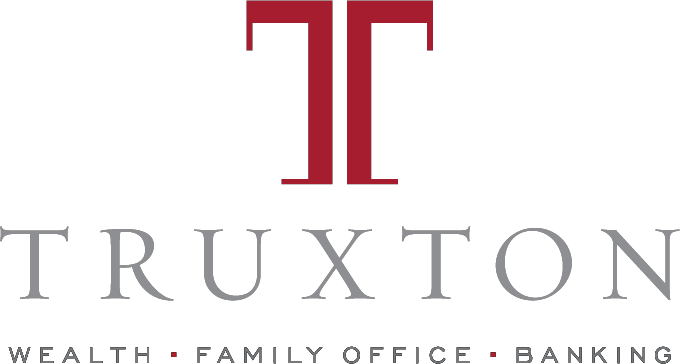Scarce Resources
- The world is awash in capital and the scarce resources are ideas that represent a good potential return on that capital.
- A strong risk management process requires a heavy dose of skepticism, a strong command of fundamentals and a rational appreciation for potential outcomes both good and bad.
- We believe investment decisions at both the individual security and portfolio level begin with managing risk.
- As with all complex and dynamic processes, wholesale portfolio change is suboptimal at best and potentially disastrous.
A long time ago, my economics teacher defined our subject as: the study of the allocation of scarce resources. I like the definition better than Merriam Webster’s: a social science concerned chiefly with description and analysis of the production, distribution and consumption of goods and services. Both definitions make sense, but the former accommodates a broader consideration and greater adaptability more suitable to the dismal science in my opinion. Since the Global Financial Crisis and accelerating since the advent of Covid, it seems to me that the catalog and ranking of specific scarce resources have undergone significant changes. While it was never stated as a law or even a rule of thumb, I always assumed that capital was a scarce resource, maybe the ultimate scarce resource. The reason is obvious enough; it is difficult to acquire. First paychecks rarely feel like a bonanza. Saving requires sacrificing things we want today. Anybody working and trying to raise a family knows that there are a lot of claims and requests that seem to drain the coffers as quickly as they build. Capital is a scarce resource, open and shut.
However, nobody seems to value capital very highly beyond personal needs and wants at the moment. Bond yields are the most obvious evidence. Despite high levels of indebtedness for governments and corporations and high prices for houses, the price borrowers are paying for the use of investor funds is very low. The price of stocks in aggregate is relatively high, reflecting strong earnings and low interest rates. Real estate is expensive. Gold is expensive. Bitcoin is expensive. Cash itself offers almost no return. The world is awash in capital and the scarce resources are the ideas that represent a good potential return on that capital. Now, higher inflation readings are deteriorating the value of cash held patiently at a more punitive pace.
Most of this has happened before. Equity valuations in the late ’90s reflected very low equity risk premiums. House prices in the mid 2000’s reflected a false sense of scarcity and artificially low cost of capital. The list goes on: tulips, railroads, Beanie Babies, oil wells, Master Limited Partnerships (MLP’s), real estate (many times), Savings & Loans….. “Cheap capital” creates the perverse incentive to overvalue other things. We don’t know how long the perverse incentives will last and we don’t know exactly which ones will define this episode of “cheap capital” for posterity.
We do know that there is no free ride. When an investor deploys cash to pursue incremental return, he or she is assuming risk. We believe some of the greatest risks come from “reaching for yield.” It’s been said many times that more money has been lost reaching for yield than at the point of a gun. If an instrument yields a significantly higher amount of yield than a federal treasury or an insured deposit with a comparable maturity then credit risk, leverage or fraud is involved. We believe investment decisions at both the individual security and portfolio level begin with managing risk. A strong risk management process requires a heavy dose of skepticism, a strong command of fundamentals and a rational appreciation for potential outcomes both good and bad.
For risk assets, we believe it is extremely important to recognize speculation. Intrinsic value is ascertainable when an investment produces cash flows and is stable enough to reasonably forecast future cash flows. In the absence of cash flows, track records and clearly enumerated business plans, the investment is a speculative guess that someone will come along and pay more somewhere down the road. A start-up is speculative. House flipping is speculative. Gold is speculative. And Bitcoin is speculative. Speculation can produce fantastic returns, but it often results in a total or substantial (and permanent) loss of capital.
Unfortunately, the investor’s options are often presented as a binary choice: all in or all out. As with all complex and dynamic processes, wholesale portfolio change is suboptimal at best and potentially disastrous. We believe the best practice is to start with a plan; evaluate the portfolio at least annually; and take a long-term perspective. I’ve used the term capital loosely in referring to available cash. Actually, capital is the cumulative sum of available cash and existing investments. Cash is merely a medium of exchange. The process of building a portfolio of investments should be thoughtful and built on a solid foundation of assets for which intrinsic value and risk can be reasonably assessed. If the assets are diversified, the probability of getting caught out of position is greatly reduced. Investor appetites change in unpredictable ways. Too great a commitment to any single asset, style or region can lead to larger than necessary declines in portfolio values or a permanent loss of capital. Reassessments should not require wholesale change. Wholesale change can be disadvantageous because of tax liabilities, missed returns on hastily sold investments, poor returns on the new investments and a general diminution of the goal relative to the mechanics of investment. If the portfolio is started on solid footings, the process of rebalancing and reevaluating is relatively straight forward. Select investments can be sold or acquired to improve the portfolio for the present circumstances and opportunity set.
An important extension brings in “human capital” or an individual’s ability to deploy his or her knowledge and skills to provide useful service, the most valuable kind of capital. We can’t control what others find valuable. We can take a thorough, thoughtful and diligent approach to managing risk and selecting investments that provide opportunity for long-term returns. At Truxton, we focus on bringing order and discipline to our clients’ financial lives so that they can enjoy the truly scarce resources: time, love and peace of mind.
We wish you a happy and prosperous New Year!

